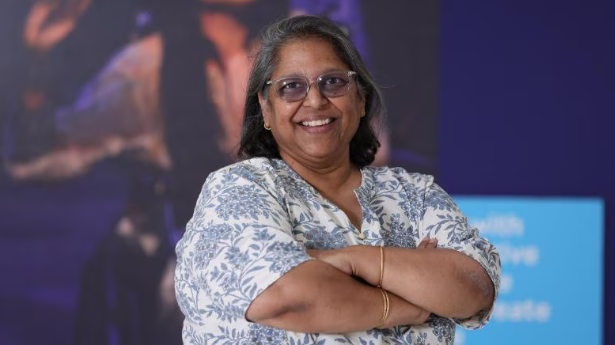

By Rittika Chanda Parruck
The recent visit of the UK Prime Minister Keir Starmer to India marked an important milestone in the next phase of the bilateral relationship – one that placed education firmly at the heart of strategic and economic cooperation. The joint statement released following the visit reaffirmed the shared commitment to the India–UK Vision 2035, with education and culture recognised as flagship pillars shaping the future of collaboration between the two nations.
For the first time, higher education featured prominently within a broader diplomatic agenda. Vice-Chancellors from 13 leading UK universities joined the delegation, with 9 of these universities already approved to open campuses in India. This is indicative of the scale of opportunity created by India’s rapidly evolving higher education landscape and the continued demand for UK education qualifications. The announcement of new transnational education partnerships and the formal establishment of UK university campuses in India will give wings to the aspirations of young people an international education and enhanced collaboration will lead to greater innovation seeking solutions to big global challenges. Indeed, good education collaboration between UK and India is great for the world at large.
It is within this context that Vision 2035 assumes renewed significance – as a living framework to enhance mobility, strengthen institutional collaboration, and build a sustainable, knowledge-driven future for both countries.
Shared vision rooted in legacy and policy
For decades, academic and research collaborations have been the cornerstone of the India–UK partnership. The two governments have put in place initiatives such as the Study India Programme, Scheme for Promotion of Academic and Research Collaboration (SPARC), the Going Global Partnerships programme, Young Professionals Scheme (YPS), and the UK-India Education and Research Initiative (UKIERI). These have laid a strong foundation for this exchange of knowledge, talent, and ideas upon which the Vision 2035 will be built.
The UK is among India’s trusted partners in facilitating internationalisation of education in India, one of the key areas of focus under India’s National Education Policy 2020 (NEP). The British Council working in collaboration with EdCIL runs capacity building for International offices of universities across the country.
At its core, India-UK Vision 2035 is guided by clear principles: nurturing the next generation of global talent, strengthening transnational education, facilitating exchange of knowledge and idea, and fostering innovation-driven growth. This includes enabling joint and dual degree programmes, encouraging the establishment of university campuses in each other’s countries, and embedding collaboration across research and skills. Importantly, the agenda goes beyond academia for co-creating solutions to global challenges such as climate change, public health, and inclusive development. It is committed to building a workforce prepared for the sustainable economies globally.
Driven by strong delivery mechanism
Without the most high-level political commitment, no policy or vision document can be successfully implemented. There are clearly outlined deliverables in the Vision 2035 statement that makes it such a practical and useful framework.
It gives assurance of an annual, India-UK Educational Ministerial Annual Dialogue that will set the strategic direction of the collaboration, and review the progress made on commitments by technical experts on various themes. This focused ministerial mechanism will ensure that cooperation does not remain static but adapts to shifting global and national needs.
Rapid technological advancements, the COVID-19 pandemic and uncertain geopolitical environment have already shown how educational institutions must evolve from being insular islands of learning into responsive, agile catalysts of knowledge creation and dissemination. The Vision 2035 provides the structure for this transformation, ensuring that education systems remain resilient and future ready.
In fact, the entire Vision will be driven by sustained high-level political commitment. Both governments have reaffirmed their intent to anchor progress through regular meetings of the two Prime Ministers providing strategic direction and oversight. Implementation too will be monitored through annual reviews led jointly by the Education Ministries on both sides and regular bilateral engagements coordinated through the Foreign, Commonwealth and Development Office and the Ministry of External affairs, embedding accountability and momentum at the highest level of leadership.
Creating and Ecosystem for two-way mobility, and mutual exchange
Student mobility has long been a foundation of the India–UK education partnership. The India–UK Roadmap 2030, announced shortly after NEP 2020, began expanding two-way mobility of students, teachers, and researchers. The roadmap lead to the signing of the Mutual Recognition of Qualification MoU. This followed by liberal regulations introduced by the Indian government and its proactive engagement with the NEP 2020 internationalisation agenda lead to a significant boost in TNE collaborations. However, a lot remained to be achieved.
The India-UK Vision 2035 commits to a review of Mutual Recognition of Qualifications MoU. In the years ahead, technical experts will review quality assurance mechanisms and explore how new excluded disciplines may be brought into the scope of the agreement. Notably engineering and STEM qualifications is a choice of approximately 20% of students going to study in the UK. Online qualifications, even in this technology driven age are not mutually recognised. It is expected that clearer guidelines and processes will emerge through the review process expanding the scope of the Mutual Recognition of Qualification MoU that will support easier two-way mobility and career progressions for students in both countries.
Expanding choices, diversity and inclusion through Transnational Education
India has one of the largest higher education systems in the world and UK one of the oldest in modern times, and also perhaps the most diverse and internationalised. UK TNE students span over 200 countries. Approximately 7,00,000 international students choose to study in the UK each year and over 20% of UK academic staff is of non-EU nationality, thus creating what is often described as a ‘mini-world’ of learning. It provides exposure to varied pedagogies and cultural contexts, resulting in enhanced learning.
India has one of the richest talent pools of young people in the world due to its demography. Last year 166,310 number of Indian students chose to study in the UK. Despite their aspiration for a global qualification in specialised areas of interest, many could not make it to the classroom of their choice due to lack of economic means or other personal circumstances.
Expanding range of economic activities requiring specialised skilled and talented manpower is also increasing. Transnational education mechanisms allow universities in both countries to offer a wider range of specialisation in qualifications than they could do alone, quicker and to a higher standard.
India is an emerging economy set to become the world’s third-largest economy, surpassing Germany and Japan, with a projected GDP of around $7.3 trillion by 2030 and International Monetary Fund (IMF) predicts a growth rate of 6.6% in the coming year. In this scenario it will be important for UK young people to live, work and understand India as it is for Indian students to get an international exposure.
Transnational exchange benefit both sides. Indian students gain from studying in highly international classrooms in India, while UK students and academics engage with the knowledge, perspectives, and innovations emerging from India. As the vision takes shape the same ecosystem will thrive in campuses set up by UK universities across India. Such diversity fosters adaptability, creativity, intercultural understanding, and networking opportunities which are qualities essential for navigating today’s interconnected world.
The Vision also specifically states its commitment to gender equity and the place of sports and culture in fostering deeper connections and building trust between youth in both countries.
Learning, from and with each other
As the digital age reshapes how societies communicate and collaborate, it also raises complex questions of trust and truth. In this environment, education serves as a collective safeguard. The India–UK Vision 2035 reflects this understanding.
It is clear that countries that wish to grow together and thrive together must also learn together. The vision commits the two countries to share knowledge through participating in events, conferences and forums created to explore in depth challenges and opportunities in education. Some such events like the Education World Forum that brings together education ministers around the world in the UK to discuss contemporary issues, and National Education Policy platforms in India have been specifically identified for these purposes but more will emerge.
As the Vision 2035 acknowledges, “The education systems of the UK and India and the rich exchange between our peoples and cultures underpin all other areas of our collaboration.” We believe it will be a vision that will give wings to the aspirations of the young people and find solutions to the toughest global challenges be it in the area of climate, conflict resolutions, critical technologies, food, healthcare and energy security through academic and research collaborations.
The writer is Director Education; British Council India awarded an MBE for work in education.
DISCLAIMER: The views expressed are solely of the author and ETEDUCATION does not necessarily subscribe to it. ETEDUCATION will not be responsible for any damage caused to any person or organisation directly or indirectly.







